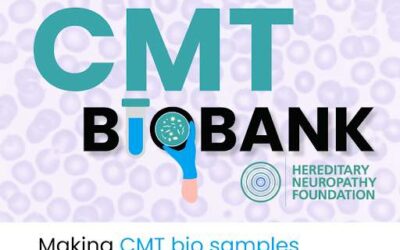HNPP is caused by a deletion of the Peripheral Myelin Protein 22 (PMP22) gene, which leads to the demyelination of the peripheral nerves. Unlike CMT1A, these patients have too little PMP22 protein. HNPP involves short periods of pressure that can result in tingling, numbness, weakness, and sometimes cause paralysis in the affected areas.
HNF Research Initiatives
FDA Repurpose Drugs
In September 2021, HNF partnered with Rarebase, a public benefit company that leverages cutting-edge technology (Function, a tech-enabled drug discovery platform) and biology using FDA-approved drugs to deliver accelerated, off-label treatments for HNPP. HNF has completed Phase I of the project.
Natural History Studies
The Global Registry for Inherited Neuropathies (GRIN)
The Global Registry for Inherited Neuropathies (GRIN) was developed in 2013 to stratify large groups of patients for all types of CMT to gain a deeper understanding of CMT. This important data also allows HNF to better identify the burden, diagnostic journey, and prevalence of CMT that will aid TRIAD research partners.
Patient data = Improved Research & Clinical Trial Design.
CMT&Me App
A smartphone digital study sponsored by Pharnext Pharmaceuticals in collaboration with HNF, other CMT advocacy groups and experts in six countries to collect real-world anonymised data from adults (≥18 years) living with CMT. The aggregated data is available in close to real time, via dashboards and is analyzed based on pre-set criteria (ie. diseases stage, daily symptoms, age, demographics) to understand the real-world impact of CMT and the unmet needs of patients.
If you don’t know your CMT type, you can find out from the HNF through The CMT Genie Program.
www.cmtgenie.org2025 CMT Roadshow Coming to a City Near You?
Do you want to make a difference in CMT research? HNF is looking for patients with a confirmed CMT diagnosis to participate in the CMT Biobank
Hereditary Neuropathy Foundation Announces Patient-Centered CMT/HNPP Pain Summit
HNF is proud to announce that our annual CMT Summit will include the HNPP community Friday, November 3, 2017, in Cambridge, Massachusetts.
HNPP Study Available for HNF Members
This study, which aims to uncover the rather unrecognized symptoms of Hereditary Neuropathy with Liability to Pressure Palsy (HNPP)



